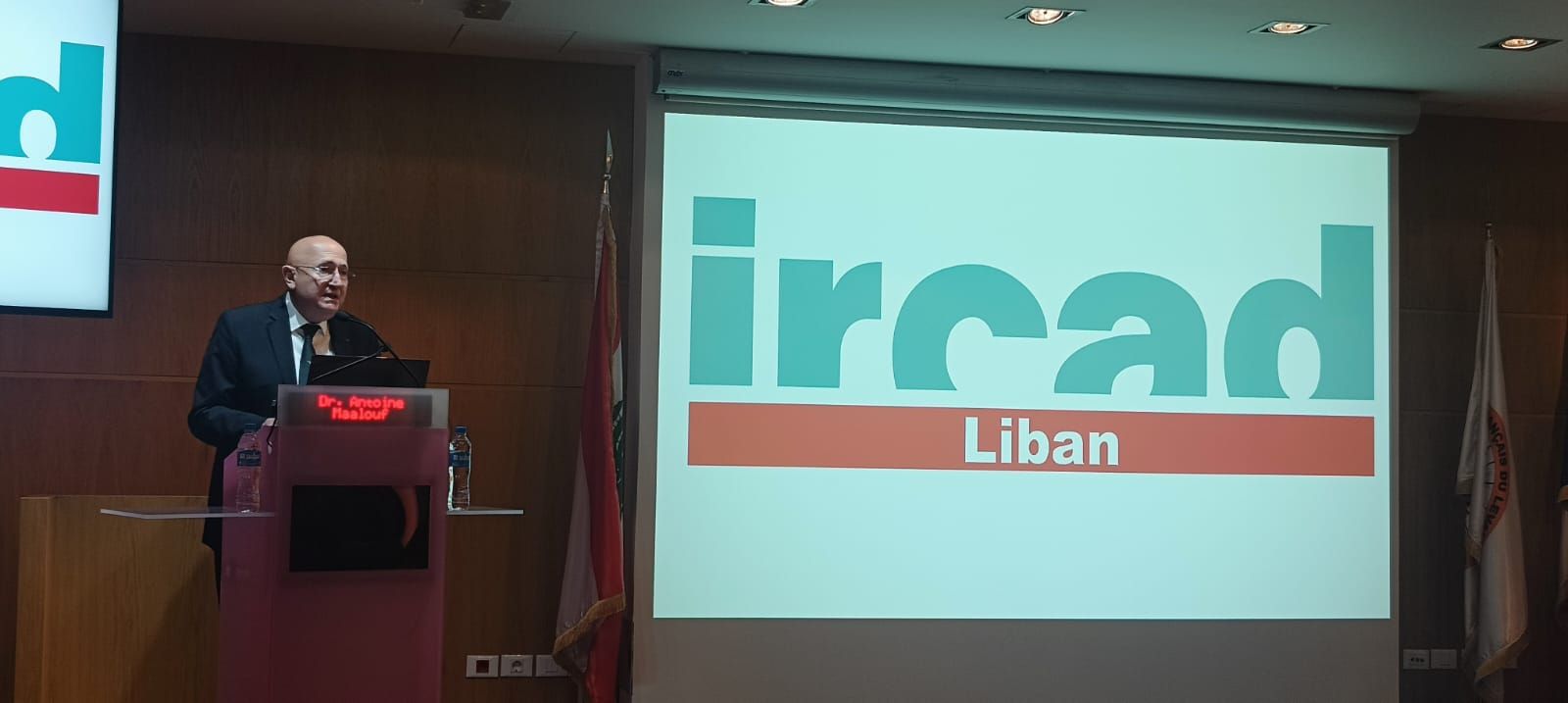
In Beirut, surgical innovation takes a new leap forward with the first robotic hepatopancreatic course organized by IRCAD Lebanon. Two intense days placed under the sign of precision, technology and the transmission of knowledge.
Under the luminous ceilings of the Clinique du Levant, IRCAD Lebanon officially launched yesterday its very first international course on robotic liver and pancreas surgery. A first in Lebanon, described by its president, Dr. Antoine Maalouf, as “a quantum leap in regional surgical practice.”
“What we are launching here goes beyond the scope of a simple scientific event,” he declared. “It’s a strong message: Lebanon, even in crisis, can remain a driver of medical innovation in the Arab world.” And he added, exclusively to This is Beirut, “I am proud to announce the first robotic surgery of the pancreas and liver, not only in Lebanon, but in the entire Middle East.”
This milestone marks an unprecedented breakthrough for the region, made possible by the expertise of IRCAD Lebanon, the only internationally accredited center in the Middle East for training in robotic surgery.
A High-Level Surgical Program
Starting at 9 AM, under the expert moderation of Prof. Eddie Abdallah, Friday morning will open with a full immersion into robotic pancreatic surgery. Dr. Ahmad Abou Abbass will detail, step by step, the robotic Whipple procedure, sharing his tried-and-tested operative tips. Dr. Juan Santiago Azagra, for his part, will discuss the specific challenges of training young surgeons in these advanced techniques.
The highlight will be the live broadcast of a robotic Whipple performed by the Lebanese surgeon, with real-time interactivity via electronic questions and voting from the main room and Alice Hall.
In the afternoon, under the direction of Prof. Abdallah Slim, the focus will shift to the hepatic revolution: Prof. Mohamad Khalife will retrace the fascinating evolution of surgical techniques, from scalpel to console, before Dr. Abou Abbass highlights the tangible clinical benefits of minimally invasive resections.
A live demonstration of a robotic liver resection, with step-by-step commentary, will precede a bilingual (French/English) roundtable featuring five complex clinical cases selected for their educational value.
Saturday’s program will see Prof. Ziad al-Rassi, a renowned Lebanese expert in digestive surgery known for his innovative anatomical approach, lead the morning dedicated to advanced techniques. On the agenda: management of perioperative complications by Dr. Abou Abbass, a technical focus on robotic distal pancreatectomy presented by Dr. Luca Theuil, and another live Whipple procedure enriched with technical commentary.
The afternoon, moderated by Dr. Antoine Younane, will bring together visionary perspectives: Dr. Azagra will explore the increasing role of robotics for non-specialists, while engineer Ralph Khalaf (Intuitive) will explain the ideal training pathway to master these technologies. The final session, open to audience questions, will synthesize the major advances presented during these two intensive days.
A Promising Future
This technological momentum is no accident. For Dr. Maalouf, the goal is to “anchor Lebanon on the map of nations that count in advanced medico-surgical training.” According to him, robotic surgery, although costly, “is not a luxury, but a necessity, because it reduces complications, improves outcomes, and accelerates patient recovery.”
He reminds us that “in the United States, only 10% of patients currently have access to this kind of procedure,” underlining the strategic scope of such an initiative in Lebanon. His ambition goes beyond the walls of IRCAD: “I remain confident in the future of medicine in Lebanon. I remain confident in Lebanon. That’s why I try to bring back all the world-leading physicians of Lebanese origin to return to their country.”
A Regional Impulse
This gathering fits naturally into the momentum initiated by IRCAD Lebanon in 2019. “This center is not a satellite. It is a regional hub for skills transfer and applied research,” emphasizes Dr. Maalouf. A pioneer of robotic medicine if ever there was one, he sees in this dynamic “a structural transformation of our medical landscape.”
An ambitious bet, certainly, but one that already seems to be carried by a team resolutely turned toward progress.
From the operating room to the conference hall, from scalpel to console, one thing is certain: in Beirut, the surgery of the future is already a reality.

Comments